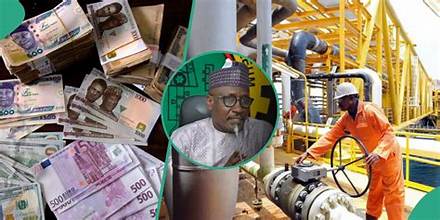Naira-for-Crude supply yet to commence
The much-anticipated Naira-for-Crude deal between the Nigerian National Petroleum Company Limited (NNPC) and the Dangote Petroleum Refinery, expected to start on October 1, 2024, has been delayed. As of Thursday, October 3, crude supply in exchange for naira had not commenced. Both the NNPC and Dangote refinery officials have remained silent on the reasons for the delay, raising concerns about the deal’s timeline.
When contacted, neither the Nigerian Upstream Petroleum Regulatory Commission, the Federal Ministry of Finance, nor the NNPC provided updates. This lack of communication has left key players in the oil industry uncertain about the next steps.
Join our WhatsApp ChannelThe Naira-for-Crude deal: A crucial agreement
The Technical Sub-Committee initially announced the Naira-for-Crude initiative on Domestic Sales of Crude Oil in Local Currency. On September 13, 2024, the committee declared that the Federal Executive Council (FEC) had approved the sale of crude oil to local refineries in naira. This agreement was seen as a strategic move to strengthen the naira and improve petroleum product availability in Nigeria. The committee had stated that NNPC would supply approximately 385,000 barrels per day (bpd) of crude oil to the Dangote refinery, with the first delivery set for October 1.
Chairman of the Technical Sub-Committee, Zacch Adedeji, who also serves as Chairman of the Federal Inland Revenue Service (FIRS), emphasized that all plans were in place for a smooth implementation. “The Chairman of the Sub-Technical Committee, Zacch Adedeji, is working day and night to ensure that things go according to plans,” said Mr. Dare Adekanmbi, Special Adviser on Media to the FIRS Chairman.
Uncertainty persists as officials stay silent
Despite officials’ strong assurance before October, the Naira-for-Crude supply has not yet materialized. Speaking anonymously, a senior official from a domestic refinery confirmed the lack of progress: “We have not received any communication from the government about the commencement of crude oil supply in naira. We are still waiting.”
READ ALSO: #Nigeria@64: Naira-for-Crude Deal Kicks Off Tuesday, Govt Set To Save Over $7bn
Another source from a modular refinery added, “The crude oil refiners’ body in Nigeria hasn’t been communicated yet on the deal. Up till last week, we were told that the deal was still on course, but as of today, there’s been no update.”
These delays have raised concerns among industry players, who are eagerly awaiting further details on when the crude supply in naira will begin. One industry expert remarked, “Deals of this magnitude often take time to sort out, but the silence from the government is causing unnecessary anxiety.”
Why the Naira-for-Crude deal matters
The Naira-for-Crude initiative is viewed as a pivotal move to ease pressure on Nigeria’s currency, the naira, and to reduce the high cost of foreign exchange transactions. By selling crude oil to local refineries in naira, the government aims to save billions of naira annually on currency conversion fees, while also ensuring that petroleum products are readily available in the domestic market.
According to the Technical Sub-Committee, the Dangote refinery, in return for receiving crude in naira, will supply Premium Motor Spirit (PMS) and diesel of equivalent value, also paid in naira. “Diesel will be sold in naira to any interested off-taker. PMS will only be sold to NNPC, who will then distribute it to various marketers,” explained Adedeji during a briefing in September.
The government’s silence raises questions
Despite the ambitious plans, the delay in implementing the Naira-for-Crude deal has raised questions about its feasibility. With key government officials declining to provide updates, stakeholders are left in the dark about the next steps. An industry insider noted, “While it’s normal for agreements of this nature to take time, the government must communicate more openly with stakeholders.”
As Nigeria looks to reduce its reliance on foreign currency for essential imports like petroleum products, the successful implementation of the Naira-for-Crude deal could mark a significant shift in the country’s economic strategy. However, with the deal still on hold, it remains to be seen how long the industry will wait before the first barrels of crude are exchanged for naira.
Emmanuel Ochayi is a journalist. He is a graduate of the University of Lagos, School of first choice and the nations pride. Emmanuel is keen on exploring writing angles in different areas, including Business, climate change, politics, Education, and others.




















Follow Us